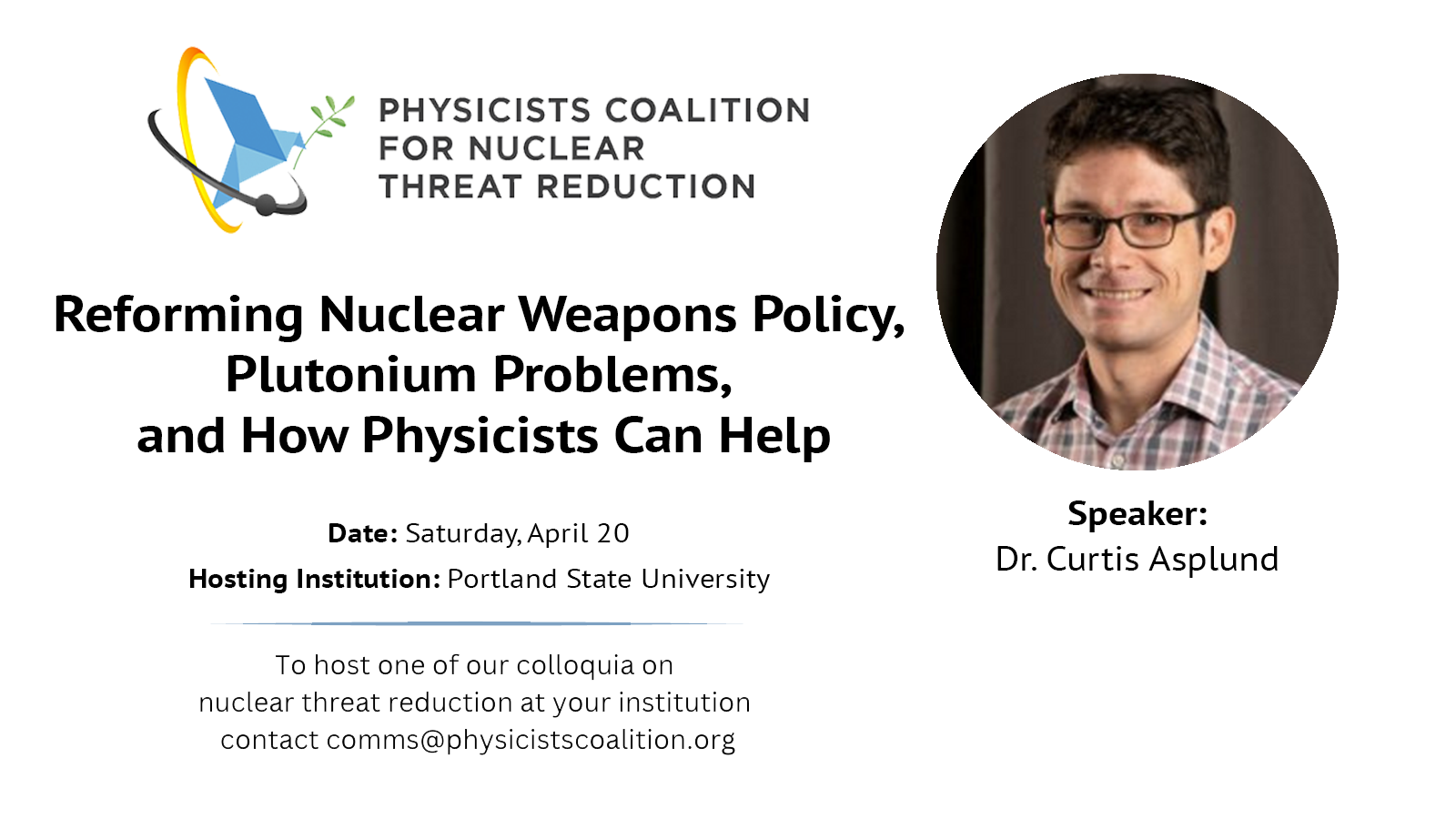
- This event has passed.
Reforming nuclear weapons policy, plutonium problems, and how physicists can help – Portland State University

Abstract
Physicists invented nuclear weapons over seventy-five years ago. Today, they still threaten humanity with catastrophe and, recently, this risk has been increasing. The US has over 1,500 deployed nuclear weapons plus thousands more inactive or retired. Current policy calls for maintaining and “modernizing” about 4,000 nuclear warheads and their delivery vehicles, at the cost of several tens of billions of dollars per year and significant risks to the environment and public health. Physicists can play an important role in providing scientific oversight and advocating for reform. I will discuss issues associated with plutonium pit production as a case study. Further details on the plutonium pit issue: Modern thermonuclear weapons contain plutonium pits, which are hollow spherical shells of plutonium metal, as part of their fission triggers. These pits are inherently difficult, costly and hazardous to produce. The Rocky Flats pit production plant, near Denver, Colorado, was closed because of environmental infractions in 1992. Since then, pit production expertise has been maintained at the Los Alamos National Laboratory in New Mexico. Current US policy calls for the production of 80 pits per year by 2030, despite the National Nuclear Security Administration (within the Department of Energy) acknowledging that this is unachievable. Furthermore, the justification for this production goal is controversial, as is the construction of a new production facility at the Savannah River Site in South Carolina, which is to cost over ten billion dollars and will pose significant risks to the surrounding community. The public deserves better and more transparent study of the policy options.
About the Speaker
Curtis T. Asplund is an assistant professor in the Physics & Astronomy Department at San José State University. Prior to this, he was a visiting faculty member at Franklin & Marshall College, and earlier was a high school teacher for several years near Washington, D.C. He completed his postdoctoral studies at Columbia University and KU Leuven, and he earned his Ph.D. from UC Santa Barbara, where he studied theoretical aspects of black holes and entanglement in quantum field theory. His interests in ethics, public policy, and the role of scientists in society emerged in his original stomping grounds of Southern California and were developed further in the liberal arts climate of his undergraduate alma mater, Oberlin College. His perspective on American military power is informed by growing up on and around U.S. military bases and having close family serving in the Marine Corps. Recently, he has studied nuclear weapons policy as a Next- Generation Fellow with the Physicists Coalition for Nuclear Threat Reduction.
